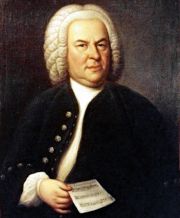 .
.
All you had missed, all you had lost
You'll find in Bach, my friend.
Music didn't let him die, music was his secret guide. Through the music he became more clear, that was the music that he could have been spelled out in the best way. Perhaps it will be possible to describe his poems, change the key from major to minor, using just one poem by Joseph Knecht from Herman Hesses's The Glass Bead Game:
We are being raised by a mystery…
As if images of stars, both sound in a crystal way…
An emerald way — adds master Ildefons with a smile…
About his music one can tell the same, what musician Zalter told in his letter to Goethe about works of Bach: “Clear, but they fail to explain”. Perhaps Gałczyński intended to achieve what once Liszt had abandoned, coming to the conclusion that sounds' repository is too limited to express the heaven's happiness. Gałczyński was searching for a way to create foundations of a language of some heaven. There was a deep reason, that beside Bach, he was referring to Bach's era composer, Scarlatti. The Italian considered himself as scherzo ingegnoso dell`arte. However Gałczyński never reached that mood of his spirit; his happiness had been broken by the gloominess of the world surrounding him, not by his own feeling of being guilty which was the most common reason for losing the joy of life…
[KIRA GAŁCZYŃSKA, Zielony Konstanty]
Musical expressions' themes in Gałczyński's poetry are even more frequent than motives of light. It would be sufficient to follow the substance of words in Bal u Salomona [Ball at Salomon's]. Sphere of imaginations, associations and feelings, tightly coupled with musical motive in Gałczyński's poetry, constitute his closest realm and a sign of his poetry, being constantly renewed, a sign that allows to recognize instantly. Marta Wyka(*) pointed, that “searching for his poetic ways of expression, poet will definitely turn to music”. E. Leśniak said very thruthfully, that “even a silence is nothing but a musical pause, suspension of a sound; there's no other silence in Gałczyński's poetry”.
Overspreading the poetical text with certain type of vocabulary and musical phraseology depend on the theme and genre. If this is a poem like Bal u Salomona [Ball at Salomon's], there will be particular concentration of espressions related to an orchestra and musical dances. In case of poems like Zaczarowana dorożka [The Enchanted Carriage], built on the base of similarity to a symphony or piano concerto, names of musical movements, as in these musical works will be present (…)
* Marta Wyka, born in 1938, Polish literary critic and a professor of the Jagiellonian University in Cracow.
